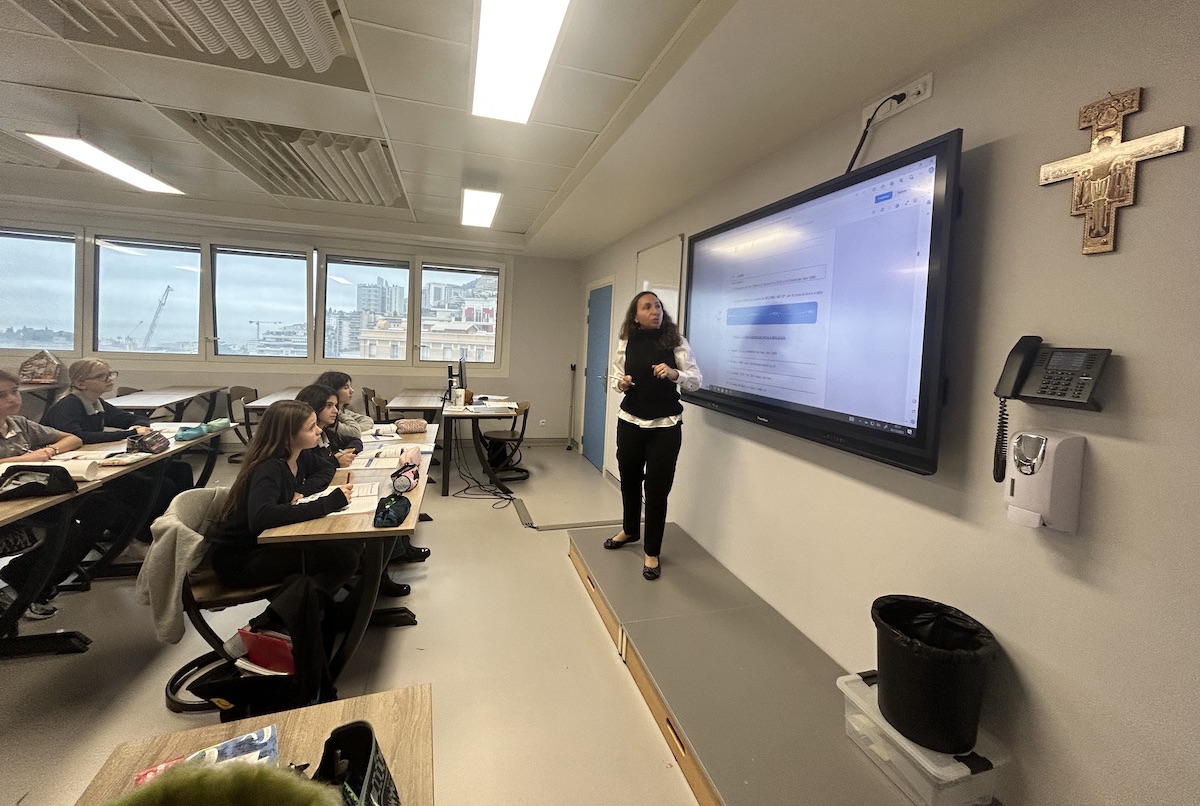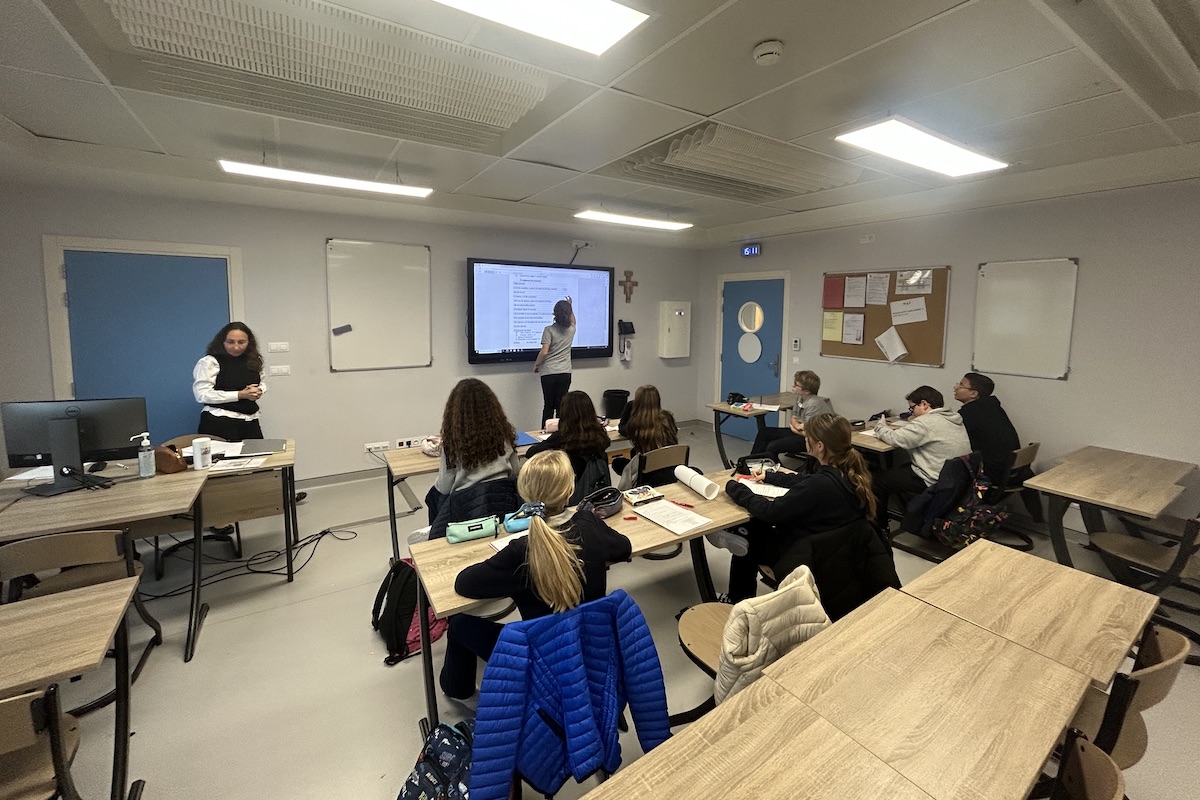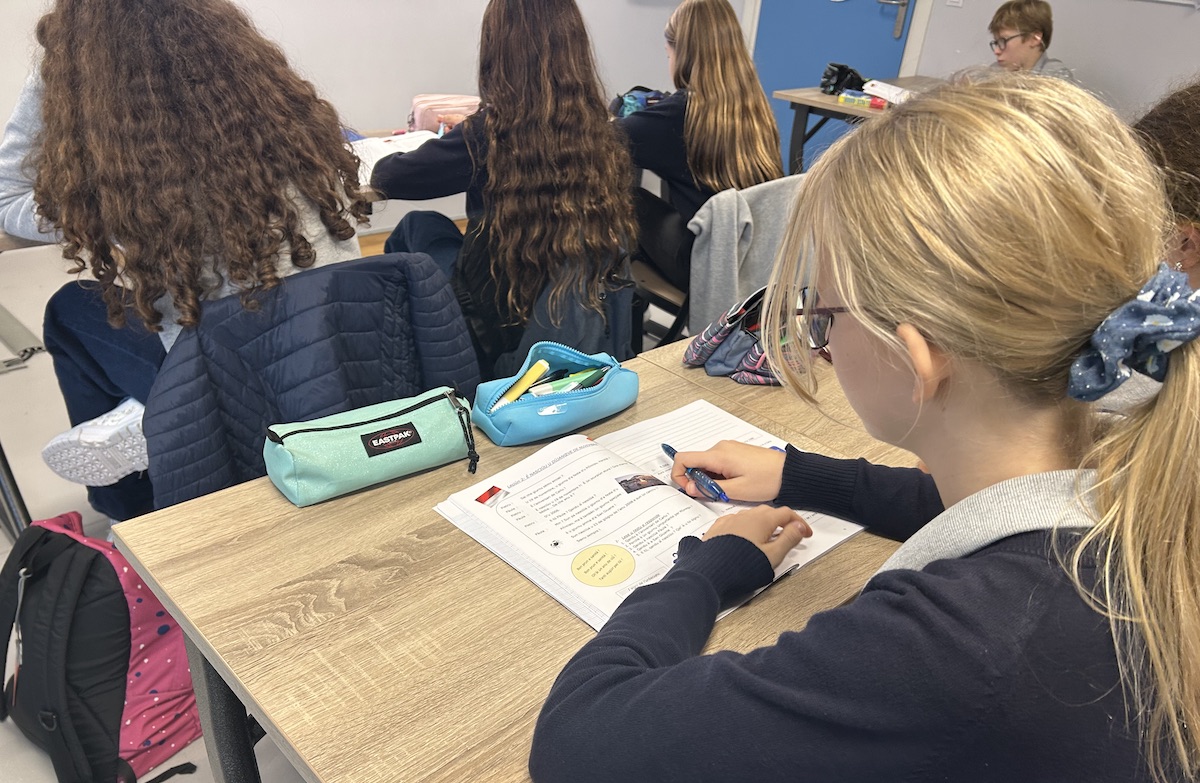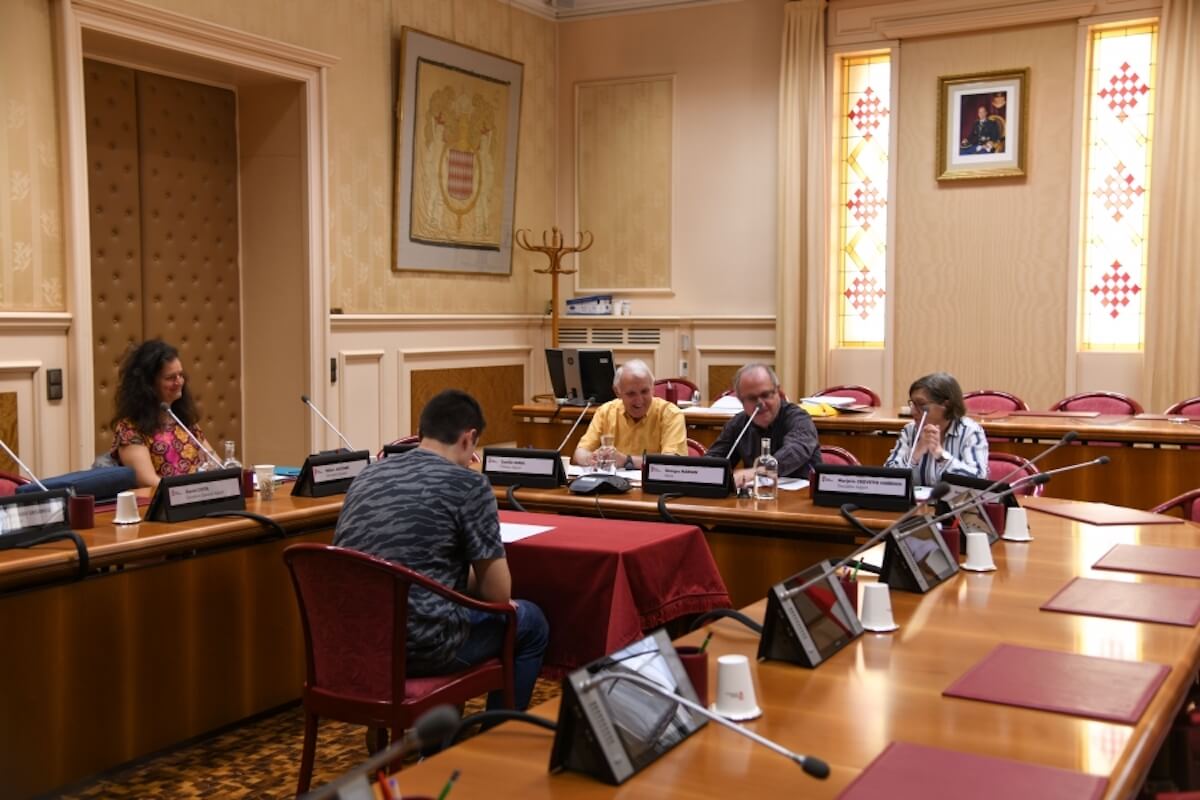Inside a middle school “munegascu” class

Monegasque is compulsory in Monaco from years 4 through 10 (US grades 3 through 9) and is available as an option at high school.
“Qandu sì nasciüu?” Today’s lesson is about dates of birth. In half-groups, Year 8 pupils at FANB take turns answering the question: “When were you born?” Even though Monegasque is no longer really spoken, the pupils, most of whom are only 12 years old, are still enthusiastic. “It’s important to learn the language because, even if we don’t speak it fluently in real life, it represents Monaco’s origins and traditions,” says Maria Teresa, seated in the front row.
And it is precisely because Monaco’s traditions are important to her that teacher Isabelle Albanese teaches the language with passion. “You feel it inside, it’s deep inside of us. I started out as an Italian teacher, so when the opportunity came up to join the team of Monegasque teachers I jumped at it. Because it’s not just about teaching the language, we are also passing on our heritage and culture. Monegasque is no longer really spoken, but it lives on. I feel like I’m on a mission.”



The one-hour Monegasque lesson takes place once a fortnight, and there is a coefficient of 0.5 for the subject – © Monaco Tribune
A popular subject
The lesson is conducted entirely in Monegasque, and the students cope pretty (very) well. “I find it quite easy to learn because it is very similar to the French language. Plus I have Spanish roots so I understand a few words thanks to that,“ says the shy Leia Levy, who sits just behind Maria Teresa and tells us a funny story. “Sometimes my sister and I use Monegasque like a sort of secret language. For example, we might say that we’ve got some chocolate and our parents won’t understand,” she says with a smile.
The teacher, who has Monegasque nationality, tells us that “there are always a couple of reluctant ones, but generally speaking it’s a popular subject with the pupils, a class where they are more relaxed. And we try to make the lessons fun to keep their attention.” As for the parents, “At first there were some concerns about overloading the children’s timetable, but they are on board now and understand that this is part of the country’s culture,” says the middle school’s educational director, Franck Fantino.
On the curriculum side, “We follow the European Language Framework, and the subject matter covered is the same as for living languages. They learn to introduce themselves, describe their home, talk about their day… And we’re also trying to include the digital aspect,” says the Monegasque teacher. Asa teacher, she feels the main issue with learning the language is being able to practice it. “The children don’t get a lot of exposure to the language, even though there are some references, mainly in Monaco-Ville with the street or restaurant names, for example.”
It is a language that has memories for some children, and allows others to learn about the country.
Isabelle Albanese, Monegasque language teacher
The Monegasque Language Contest
There is an opportunity for pupils to test their proficiency in Monegasque, thanks to the Monegasque Language Contest launched by Monaco town council along with the DENJS, the national education, youth and sports administration. All pupils from years 6 through 10 take part, plus high school pupils who have taken the language as an option. It is made up of a written paper, which everyone sits, and only the best ten from each year go forward to the oral. Prize giving is usually in June at the Town Hall. An event that is both relaxed and official, as it is attended by the Sovereign and Monegasque authorities.

While there is a little extra revision ahead of the contest, “there is no specific preparation because the topics are from the year’s curriculum,” says the teacher, who makes no secret of her pride in her pupils’ success. “We are very proud when they get to that level, happy to see the joy in their eyes and their arms full of prizes.” As you will have gathered, French is the official language in Monaco, but “a lenga d’i nostri avi” (the language of our ancestors) still has a voice.









